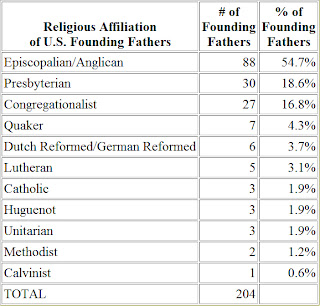Deism: a movement or system of thought advocating natural religion, emphasizing morality, and in the 18th century denying the interference of the Creator with the laws of the universe.
A brother recently claimed, to support his
activities in the now 5 day old "Grand
Orient of the United States of America" in
that modern "Freemasonry has lost track of
its origins". Expanding on that, he went on
to claim that Masonic Lodges should have a
blank book representing the volume of Sacred
Law because the "majority of early
Freemasons were Deists".
He used Benjamin Franklin, PGM Pennsylvania,
Paul Revere, John Hancock and Voltaire as
exemplars to support his conclusions. Its
not possible at this time to determine the
number of men who were Freemasons worldwide
in the late 1700's. However, it does not
seem unreasonable, given the number of
Lodges in the world to put that number in
the hundreds of thousands. Even if the
numbers were only 100,000, four exemplars is
hardly representative of... even a single
lodge.
Moreover, research indicates that while
Benjamin Franklin did, in fact, have deist
leanings, he was a (infrequently) practicing
Episcopalian(1), Paul Revere was a
Congregationalist(2), John Hancock was
Congregationalist(3), and on his deathbed,
Voltaire declared himself a Catholic(4).
Research shows the claim to be without
foundation, though intellectual honesty
requires the notation that SOME masons,
were, in fact, deists.
As a means of getting a larger sampling, I
used the known 9 masons who signed the
Declaration of Independence, the six men who
Signed the Articles of Confederation, and
the 13 men who signed the U.S. Constitution
(there is some overlap in these lists) to
see what the religions were of these men.(5)

Signers of the
Declaration of Independence
William Ellery, RI Congregationalist
Benjamin Franklin, PA Episcopalian (Deist)
John Hancock, MA Congregationalist
Joseph Hewes, NC Quaker/Episcopalian
William Hooper, NC Episcopalian
Robert Treat Paine, MA
Congregationalist/Episcopalian
Richard Stockton, NJ Presbyterian
George Walton, GA Episcopalian
William Whipple, NH Congregationalist
Signers of the Articles of Confederation
Daniel Carroll Catholic
Henry Laurens Huguenot
John Harvie Protestant
Cornelius Harnett Episcopalian(Deist)
Jonathan Bayard Smith Protestant
John Dickison Quaker/Episcopalian
John Hancock, MA Congregationalist
Daniel Roberdeau Protestant
Signers of the Constitution
George Washington Episcopalian
Gunning Bedford Jr. Presbyterian
Benjamin Franklin, PA Episcopalian (Deist)
John Blair Presbyterian/Episcopalian
David Brearley Episcopalian
Rufus King Episcopalian/Congregationalist
John Dickinson Quaker/Episcopalian
Jacob Broom Lutheran
Daniel Carroll Catholic
Jonathan Dayton Presbyterian/Episcopalian
Nicholas Gilman Congregationalist
James McHenry Presbyterian
As can be seen from the list, only two men
were identified as Deists, and most
documents I have been able to find regarding
the religion of the early colonies indicate
there were VERY few deists. That written, I
wish to refer back to my blog entry A
Peculiar System of Morality, Taught by
Allegory to note that the Peculiar System of
Morality taught by masonry is most likely
the FREEDOM to choose one's religious
affiliation.
Of course, to the established religion, the
most vile accusation they could make is that
Freemasons were evil and devil worshipers,
and the second worst is that we were all
deists, since the essence of Deism is the
denial of a personal caring g-d. Freemasonry
is a system of morality, not a religion, and
its lessons are acceptable to men of all
faiths, Christian, Hebrew, Muslim, Buddhist,
and yes, Deist.
May the blessing of heaven rest upon us and all regular masons. May brotherly love prevail, and every moral and social virtue, cement us.
References:
(1) http://www.adherents.com/people/pf/Benjamin_Franklin.html
(2) http://www.paul-revere-heritage.com/landmarks.html
(3) http://www.adherents.com/people/ph/John_Hancock.html
(4) http://www.adherents.com/people/pv/Voltaire.html
(5) http://www.adherents.com/people
16 comments: